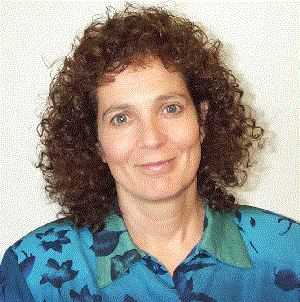Next Profile
Achievement Profile: Susan Gaer
Weaving a Tapestry of ESL Projects on the Internet
Susan Gaer is an associate professor of ESL at Santa Ana College,
School of Continuing Education. She has an MA in English with emphasis
on Teaching English as a Second Language and an MA in Educational
Technology from Pepperdine University. She has taught online courses
for the New School of Social Research and teaches technology and
second language learning at California State University, Fullerton.
She is on the CATESOL board as a technology consultant and has
served in a leadership position in the CALL Interest Section.
She helped pioneer TELL (Technology Enhanced Language Learning)
Interest Group for CATESOL. The ESL MiniConference Online
newsletter is pleased to share Professor Gaer's comments from
a recent interview.
Some Susan Gaer links:
SusanGaer.com
What is your main ESL activity now? What are your
principal projects, and what is on the back burner?
I teach English as a Second Language for Santa Ana
College, School of Continuing Education
.
Besides teaching, I also train teachers how to use
technology
(http://ext.sac.edu/continuing_education/technology_training).
On the side, I develop projects for students who are
learning English
(http://www.otan.dni.us/webfarm/emailproject/email.htm).
The projects are so interesting that we have people
participating from all over the world. Many are not
English as a Second Language students but just
interested persons.
How did you start your ESL career? Who influenced
your decision? What were some important formative
experiences in the early stages of your development?
When I was a student at Arizona State University, I
started as a Spanish major. Many of the students there
were native Spanish speakers. I was learning Spanish as
a Second Language. Since the program graded on a curve,
I most often received low grades. I became very
frustrated and decided, if they are native Spanish
speakers and they are in the Spanish program, I am a
native English speaker so I should major in English.
So I changed my major. However, I had no idea what to do with that major. So I asked my advisor what
can I do with a BA in English. He said lots of things.
How about if you volunteer and find out. So he put me
in a VISTA program (http://www.friendsofvista.org/)and I loved it. I
thought this is what I want to do for the rest of my
life. I asked my advisor what to do and he said go to
San Francisco State. They have an excellent program.
That is what I did. I went to San Francisco State
University, got my BA in English and then continued on
with my Masters in English: TES/FL.
What are the four or five language/culture backgrounds
with which you are most familiar as a teacher? Which
ones are you familiar with from the perspective of a
language learner yourself? What insights have you
gained in how to meet the needs of English learners
from these cultures and language backgrounds?
I have
taught Lao/Hmong/Mien/Lahu in Central California,
Vietnamese, Spanish, Russians, Japanese, Korean...you
name it, I have taught them.
I have studied Korean, Japanese and Spanish. I think
learning another language gives you a perspective on
some of the difficulties students have learning.
If you had to give three pieces of advice to a
new ESL teacher, what would they be?
Plan. Plan. Plan.
Meet the needs of your students by finding out what
they need to learn.
Live for the teachable moments. When a teaching point
comes up in class go with it even though you didn't
plan for it to happen.
What do you see as the most important issues
facing the ESL/EFL teaching profession today?
The lack of full-time teaching positions in the USA.
The fact that language is learned not just through
grammar. I feel that too many programs focus too much
on just straight grammar teaching rather than on
problem based learning which teaches the whole person.
Interviewed by Robb Scott
2002 ESL MiniConference Online
TESOL 2000 Colloquium: Perspectives on CALL for Project-Based Learning
Classroom Practice: An Introduction to E-Mail and World Wide Web Projects - in
CALL Environments: Research, Practice, and Critical Issues (1999)
Using Software in the Adult ESL Classroom. ERIC Q & A (1998)
Less Teaching and More Learning - in the Focus on Basics newsletter (1998)
An ESL MiniConference Online interview
with Susan Gaer: